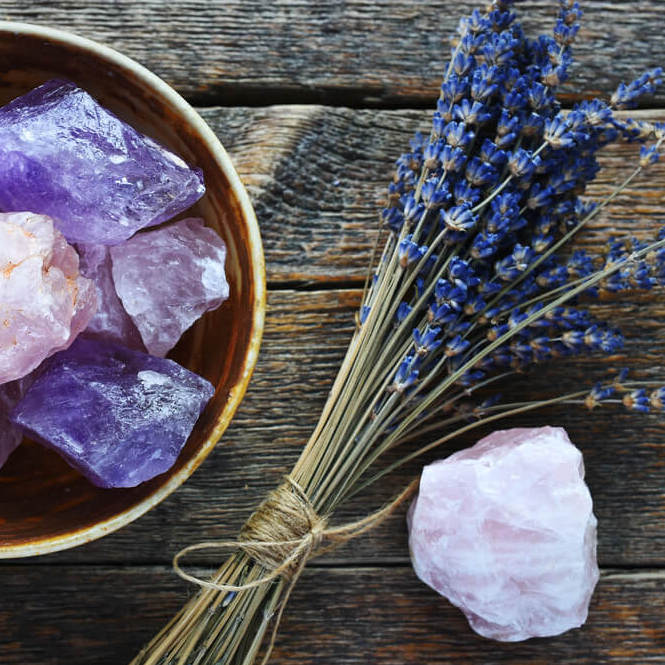Share this article…

Constantly wondering why you’re not getting to where you want to be in life?
You need a lesson in the art of re-centring, says Fiona Cowood.
Are you someone who often talks about how you’d like your life to look? A clutter-free, bigger house, perhaps? Or maybe more meaningful work, kids that don’t bicker and holidays in #blissful far-flung places? In January, it’s easy to feel like you want to overhaul every area of your life, especially when social media is flooded with people manifesting new cars, better habits and grand plans. But while there’s nothing wrong with setting yourself goals, there’s a vital step that often gets overlooked in the process.
To fully understand it, take a moment to picture yourself sitting in the car (stay with me), punching in a post code and waiting those few seconds for the Sat nav to flash up with the quickest route to your destination. During those brief moments, the Sat nav is first working out where you are – only then can it plan your route. Until it’s pinpointed you, the journey can’t and won’t happen. And yet, in our own lives, we often expect to end up somewhere different before we even know we are – we fail to hit ‘re-centre’ on ourselves.
“We can so easily be swept up in the speed of life that we lose our intentionality.”
Psychotherapist and author Anna Mathur agrees. “We can so easily be swept up in the speed of life that we lose our intentionality,” she says. “That’s why it’s really important to step off the treadmill, stick a stake in the ground and assess where you’re at – how you’re feeling, what you need, and whether the decisions you’re making are in line with your values. We make so many little and big decisions every day and because we’re often so busy being busy, we make them on autopilot. Then we wonder why another year has passed and nothing has changed.”
If this chimes with you, Mathur has a plan to help you live more intentionally – no more wondering how another year slipped through your fingers, no more feeling stuck…
Step one: Write down what matters most to you
“Ask yourself this: If something were to happen to me tomorrow, would I be pleased with how I spent my time? Because how we spend our days, is essentially how we spend our lives and unless we become intentional, we’ll carry on doing what we’ve always done. So write down four values – four things that really matter to you,” says Anna.
Think of them as the foundations that will underpin many of the decisions you make individually or as a family – yours could be anything: adventure, fun, stability, creativity…. Often people find themselves doing this when they lose someone special or face illness, but you needn’t wait for disaster to strike – take the initiative.
Step two: Include gratitude in your stocktake
“When we’re always looking at what we want to change, we can lose sight of what’s already good in our lives,” says Anna. “Often, it’s the simple things we want more of: time with certain people, doing activities that make us feel good. Working out how we can include more of those things in our lives is just as important – if not more important – than bringing in big, new changes.”

Step three: Put your values where you can see them
Don’t feel shy about displaying what’s important to you – simple mantras can become reminders that will influence you daily. “Perhaps one of the things you value is ‘slowness with my family’ because you’re tired of all the rushing and nagging. If you have that little statement on display, it will keep it fresh in your mind and perhaps, when you’re asked to do yet another thing, you’ll stop before automatically saying ‘yes’,” says Mathur.
Step four: Set intentions rather than goals
Think about what you can do differently ‘most of the time’ rather than ‘all of the time’. “It’s a kinder way of doing things and it builds in the fact that there will be failures and setbacks along the way,” says Anna. “When you act out of intention, you’re making the statement that you deserve more – it builds self-esteem and subtly shifts the way you relate to yourself. And remember that it’s the little things that have the power to change our lives because they’re more implementable. Think of an aeroplane – if you nudge the flight path by just a few degrees, it will end up on a different continent. Small is where the magic happens.”

Step five: Guard your time
Now that you’ve taken stock of where you are and feel clear on what you want to achieve, wake up to the power of the pause. When someone extends an invitation or asks if you can help them out, Mathur suggests pausing – it sounds simple but it’s a habit that many of us skip, choosing instead to hurriedly check the diary and agree to plans without thinking them through.
“Say you’ll check your diary and let them know – that allows you to take stock, look at the wider week, see how everyone is feeling, assess your energy levels. It also means that if you do go back with a ‘yes’, it’s a wholehearted yes, which is better for everyone.”
On a bigger scale, this pause means that you only give your time and effort to the things that recharge you, rather than filling up your diary with obligations that leave you feeling depleted. That’s a powerful return on a simple pause.
Anna Mathur’s podcast, The Therapy Edit releases two episodes each week. Available on Apple, Spotify and all major podcast platforms.
Share this article…





